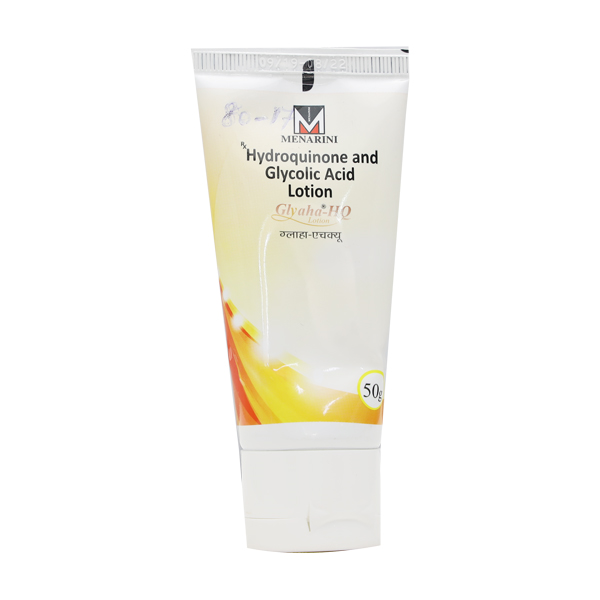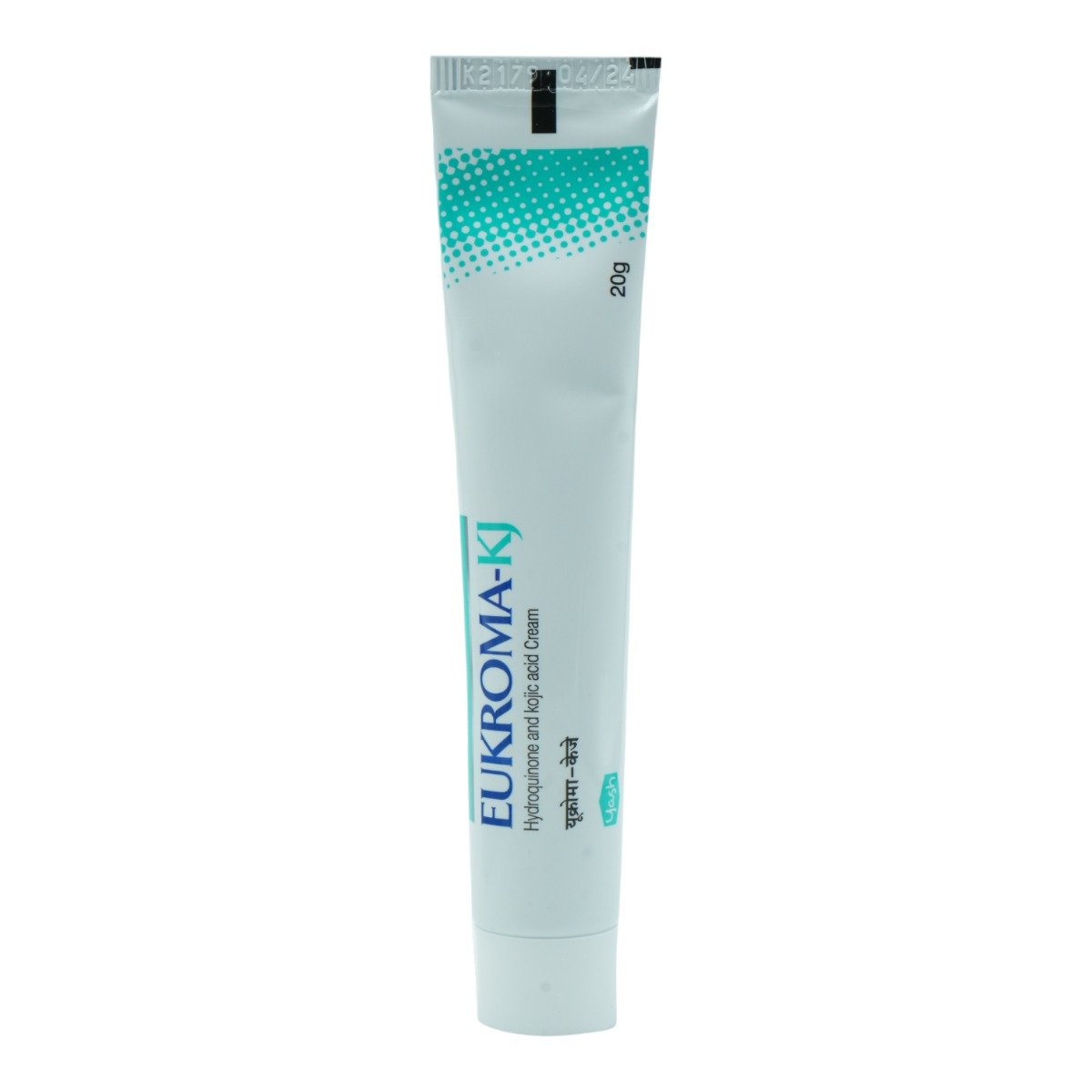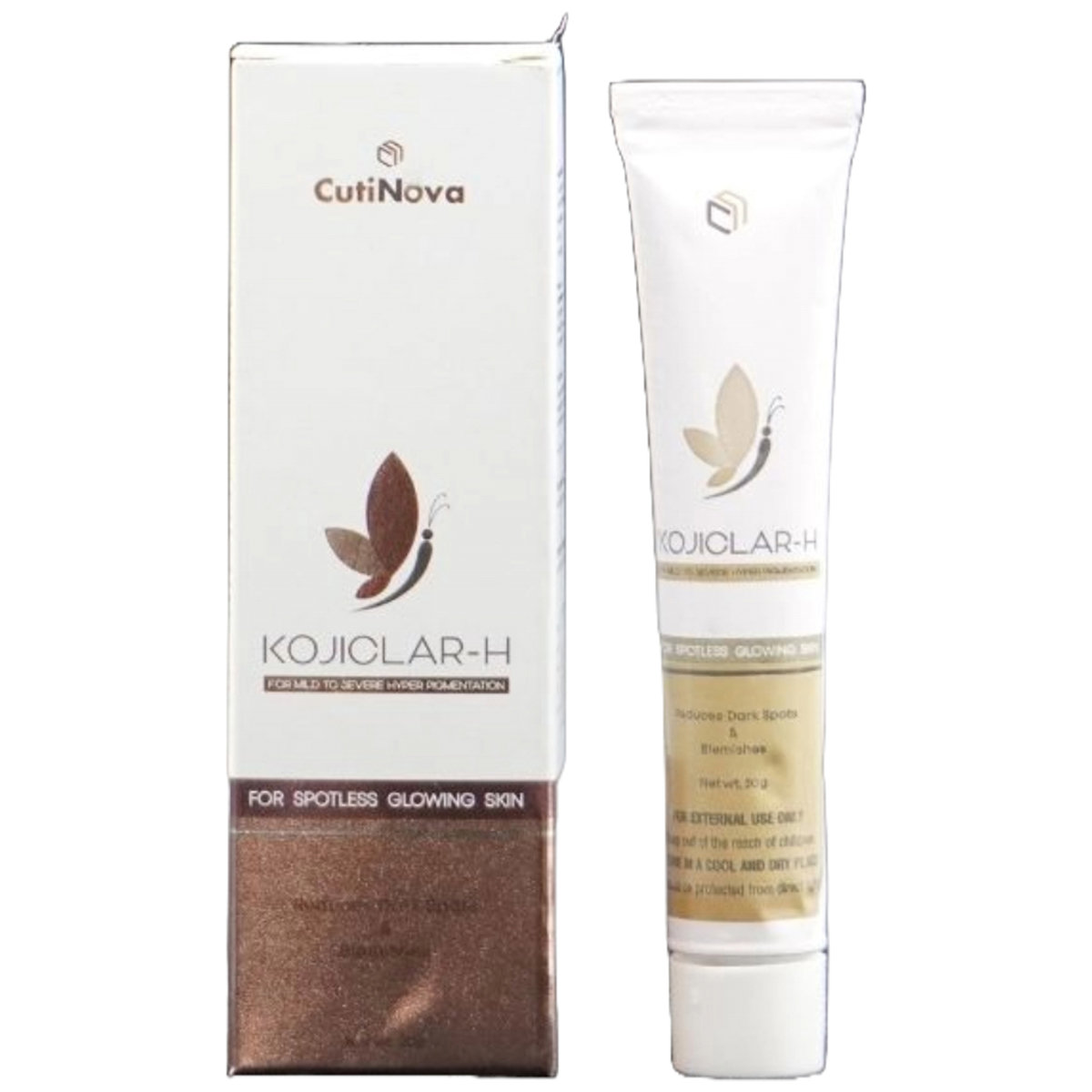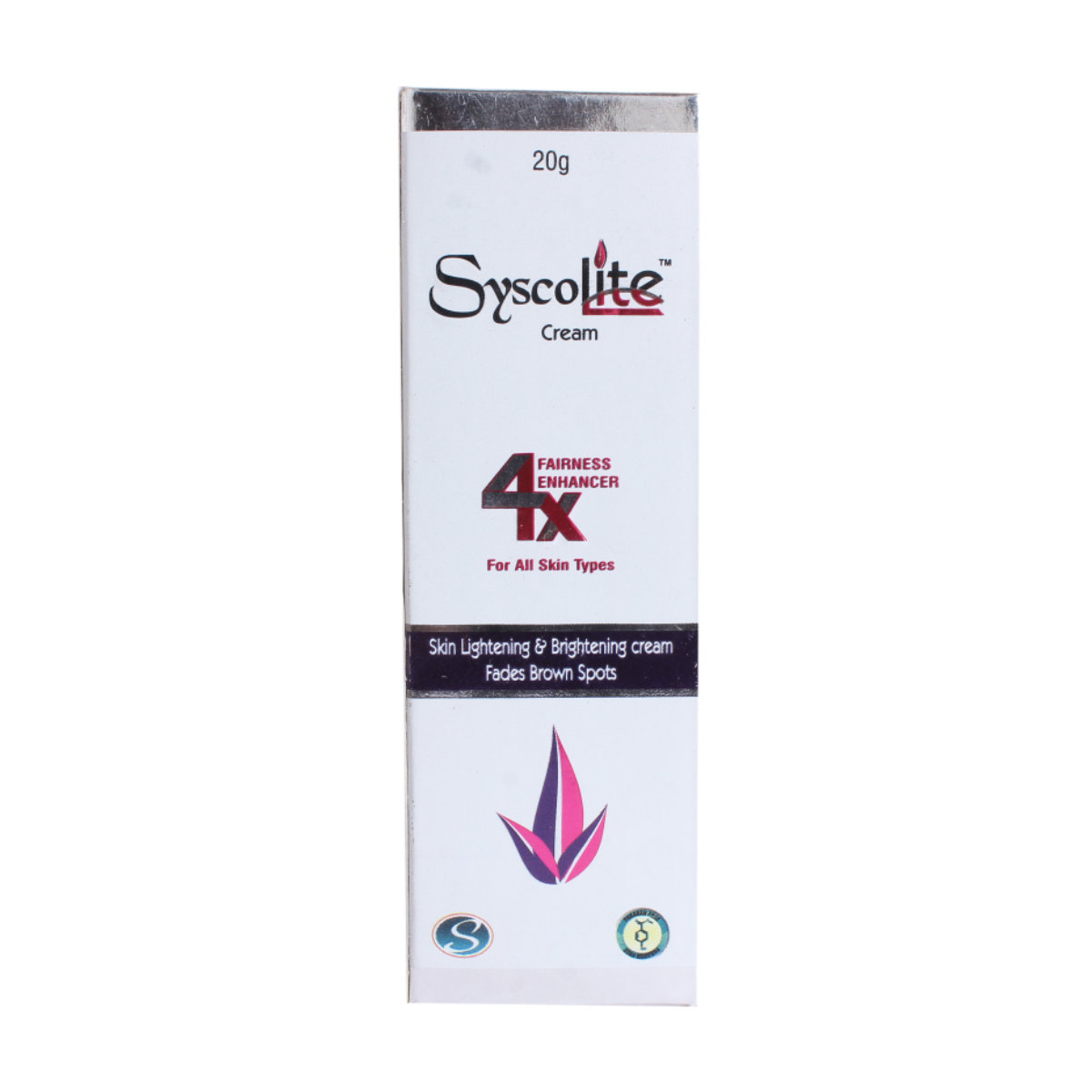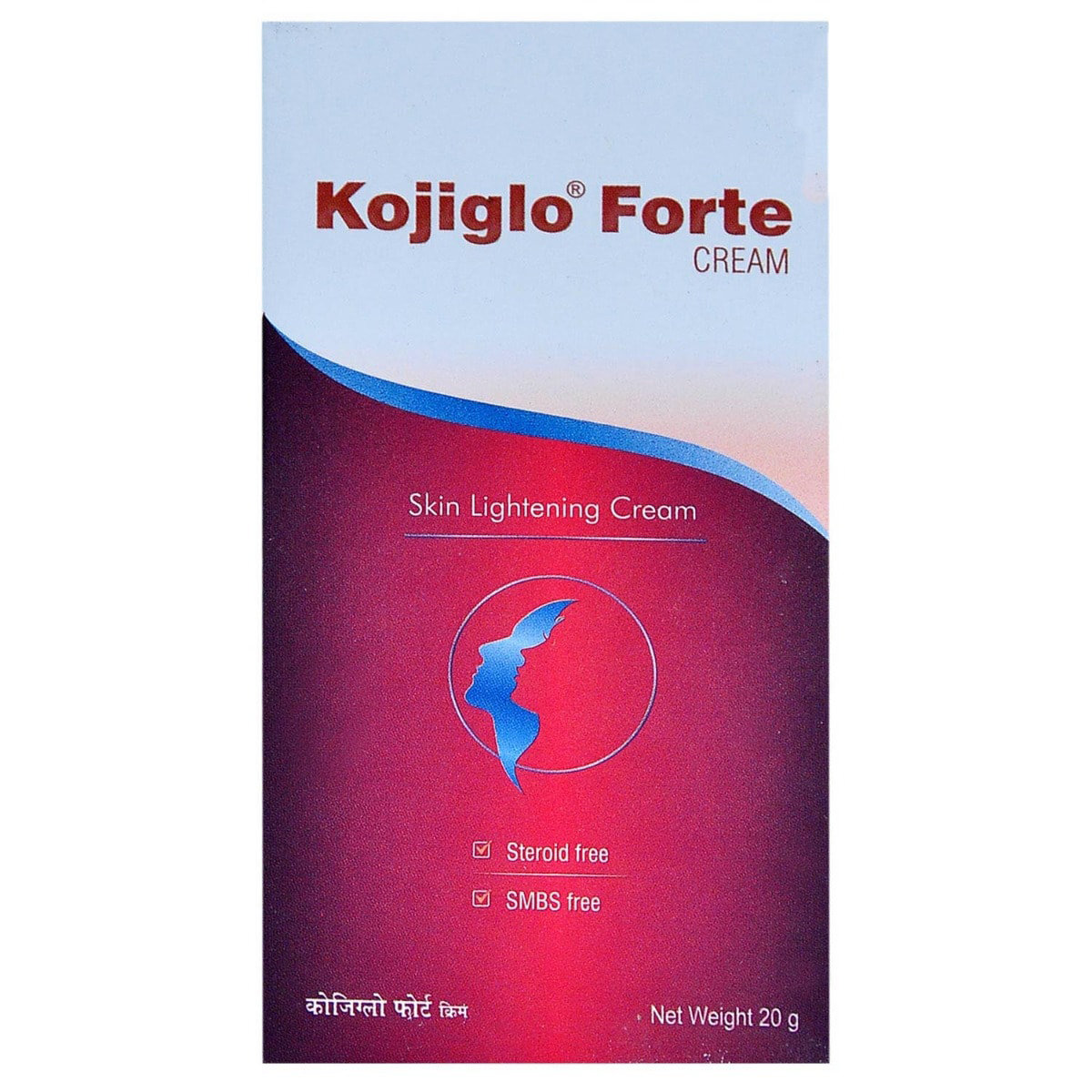Hydroquinone+para Aminobenzoic Acid
About Hydroquinone+para Aminobenzoic Acid
Hydroquinone+para Aminobenzoic Acid belongs to a group of medicines known as 'skin lightening agents or depigmenting drugs', primarily used to treat melasma (dark brown patch on the skin, liver spots, age spots, freckles) caused by birth control pills, hormonal medicine, pregnancy, or any injury of the skin. Melasma, also known as chloasma or mask of pregnancy, is a common skin condition that causes brown patches on the face. It is more common in women than in men. The discoloured (grey-brown) patches occur mostly on the forehead, chin, nose, and cheeks. This medicine also contains sunscreens that help prevent spots from returning from sunlight exposure.
The Hydroquinone+para Aminobenzoic Acid contains two medicines: Hydroquinone (skin lightening or bleaching agent) and Para-aminobenzoic acid (PABA). Hydroquinone belongs to the class of skin-lightening agents that decrease the amount of melanin (a skin pigment) responsible for the darkening of the skin. PABA is a sunscreen that blocks the skin's ultraviolet (UV) radiation. PABA is a vitamin B10 that helps darken grey hair and improve certain skin issues. PABA absorbs the harmful ultraviolet (UV) rays associated with sunburns and DNA damage. Both, in combination, help in reducing dark spots on the skin.
Apply Hydroquinone+para Aminobenzoic Acid as exactly prescribed by your doctor. Some people may experience skin pain, acne, redness, irritation, burning, itching, or stinging sensation of the skin. Most of these side effects of Hydroquinone+para Aminobenzoic Acid do not require medical attention and gradually resolve over time. However, if the side effects persist or worsen, please consult your doctor.
Please tell your doctor if you are allergic to Hydroquinone+para Aminobenzoic Acid or any other medicines. If you are pregnant, a nursing mother, or planning for pregnancy, it is advised to consult a doctor before using Hydroquinone+para Aminobenzoic Acid. Hydroquinone+para Aminobenzoic Acid is not recommended for children below 12 years of age. Do not apply the Hydroquinone+para Aminobenzoic Acid on ulcerated skin or wounds.
Uses of Hydroquinone+para Aminobenzoic Acid
Medicinal Benefits
The Hydroquinone+para Aminobenzoic Acid contains two medicines: Hydroquinone (skin lightening or bleaching agent) and Para-aminobenzoic acid (PABA). Hydroquinone belongs to the class of skin-lightening agents that decrease the amount of melanin (a skin pigment) responsible for the darkening of the skin. PABA is a sunscreen that blocks the skin's ultraviolet (UV) radiation. PABA is a vitamin B10 that helps darken grey hair and improve certain skin issues. PABA absorbs the harmful ultraviolet (UV) rays associated with sunburns and DNA damage. Both, in combination, help in reducing dark spots on the skin.
Directions for Use
Storage
Side Effects of Hydroquinone+para Aminobenzoic Acid
- Skin pain
- Acne
- Redness
- Irritation
- Burning
- Itching or stinging sensation of the skin
Drug Warnings
Avoid smoking or going near naked flames as the fabric (bedding, clothing, dressings) that is in contact with Hydroquinone+para Aminobenzoic Acid catches fire and burns easily. If you have a sulfite allergy, asthma, rosacea (redness and often red, small, pus-filled bumps on the face), acne, skin thinning, perioral dermatitis (redness and swelling of the skin around the mouth), genital itching, chickenpox, diabetes, cold sores, ulcerated skin, warts, shingles (a viral infection causing painful rash), eczema (itchy, swelling of the skin) or any other skin condition, inform your doctor before taking Hydroquinone+para Aminobenzoic Acid.
Drug Interactions
Drug-Drug Interactions: Hydroquinone+para Aminobenzoic Acid may interact with photosensitizing agents (aminolevulinic acid, porfirmer, verteporfin), topical antibiotics (benzoyl peroxide), retinoids (isotretinoin), psoralens (methoxsalen), sensitizer (methyl aminolevulinate), antiseptic (resorcinol), keratolytic agents (salicylic acid, sulfur).
Drug-Food Interactions: No interactions found.
Drug-Disease Interactions: If you have a sulfite allergy, asthma, rosacea (redness and often red, small, pus-filled bumps on the face), acne, skin thinning, perioral dermatitis (redness and swelling of the skin around the mouth), genital itching, chickenpox, diabetes, cold sores, ulcerated skin, warts, shingles (a viral infection causing painful rash), eczema (itchy, swelling of the skin) or any other skin condition, inform your doctor before taking Hydroquinone+para Aminobenzoic Acid.
Drug-Drug Interactions Checker List:
Safety Advice

Alcohol
cautionThe interaction of alcohol with Hydroquinone+para Aminobenzoic Acid is unknown. Please consult a doctor before consuming alcohol while using Hydroquinone+para Aminobenzoic Acid.

Pregnancy
unsafeHydroquinone+para Aminobenzoic Acid is unsafe to use in pregnancy as it may make the skin more sensitive during pregnancy and may cause potential toxic effects. Apply Hydroquinone+para Aminobenzoic Acid only when prescribed by the doctor.

Breast Feeding
unsafeHydroquinone+para Aminobenzoic Acid is unsafe to use in breastfeeding as it may cause potential toxic effects. Apply Hydroquinone+para Aminobenzoic Acid only when prescribed by the doctor.

Driving
safe if prescribedHydroquinone+para Aminobenzoic Acid usually does not affect your ability to drive or operate machinery.

Liver
cautionHydroquinone+para Aminobenzoic Acid should be used with caution in persons dealing with liver disorders and should be used only when prescribed by a doctor.

Kidney
cautionHydroquinone+para Aminobenzoic Acid should be used with caution in persons dealing with kidney disorders and should be used only when prescribed by a doctor.

Children
unsafeHydroquinone+para Aminobenzoic Acid is not recommended for children below 12 years of age, as the safety and effectiveness were not established.
Habit Forming
Diet & Lifestyle Advise
- Avoid sun exposure while using Hydroquinone+para Aminobenzoic Acid as it may make the skin more sensitive to sunlight and cause sunburn. Wear protective clothing and use sunscreen while going out to protect your skin from sunburn.
- Regular exercise can improve your mood and self-esteem though it doesn’t clear spots. Take a shower immediately after finishing the exercise.
- Wear a wide-brimmed hat to protect your face from sun exposure.
- Avoid using skin products that irritate, such as skin cleansers or shampoos, harsh soaps, hair removers or waxes, hair colours or permanent chemicals, and skin products with astringents, lime, spices, or alcohol.
Special Advise
- Avoid using Hydroquinone+para Aminobenzoic Acid for more than 6-8 weeks without a doctor’s advice.
- Please consult a dermatologist if the skin condition does not improve after 2-3 months of treatment with Hydroquinone+para Aminobenzoic Acid.
- Do not take Hydroquinone+para Aminobenzoic Acid by mouth. Hydroquinone+para Aminobenzoic Acid is for use only on the skin (topical use). Accidently if Hydroquinone+para Aminobenzoic Acid gets in your eyes or mouth, immediately rinse with cold water.
- Do not take Hydroquinone+para Aminobenzoic Acid if you allergic sulfa containing medicines and have asthma. It is better to contact a doctor in these conditions and take Hydroquinone+para Aminobenzoic Acid.
Patients Concern
Disease/Condition Glossary
Melasma: It is also known as chloasma, a common skin condition that causes brown patches on the face. The discoloured (grey-brown) patches occur mostly on the forehead, chin, nose, and cheeks. Melasma may be caused due to sun exposure, hormone therapy, pregnancy, birth control pills, thyroid, or even stress. It is more common in women than in men. It may occur in pregnant women due to hormonal changes during pregnancy. It is called a ‘mask of pregnancy and fades away after pregnancy on its own or after stopping using contraceptive pills. It can be treated using skin-lightening creams, topical steroids, dermabrasion, or chemical peels.
FAQs
Melasma is a skin issue that causes discolored dark brown patches on the skin. These patches are usually dark than normal skin tone and occur on the forehead, cheeks, chin, and bridge of the nose.
PABA, also called vitamin B10, is an organic compound that protects the skin from harmful sun rays. PABA even works well in sweating but does not work when the skin is submerged in water during swimming.
Hydroquinone is a skin-lightening medicine that is used to treat dark spots of the skin. It works by decreasing the number of melanocytes present in the skin. Melanocytes are cells that make a pigment known as 'melanin,' which is responsible for giving color to hair and skin. It also improves the appearance of blemishes like birthmarks and dark patches (melasma).
Hydroquinone+para Aminobenzoic Acid contains two medicines, namely: Hydroquinone (skin lightening or bleaching agent) and Para-aminobenzoic acid (PABA). Hydroquinone belongs to the class of skin lightening agents that works by decreasing the amount of melanin (a skin pigment) that is responsible for the darkening of the skin. PABA is a sunscreen that blocks ultraviolet (UV) radiation to the skin. PABA is a vitamin B10 that helps to darken gray hair and also improve certain skin issues. PABA absorbs the harmful ultraviolet (UV) rays that are associated with sunburns and DNA damage. Both in combination helps in reducing dark spots of the skin.
It has been reported in some patients that Hydroquinone+para Aminobenzoic Acid may increase the skin sensitivity to sunlight in the treated areas. Therefore, avoid or limit exposure to sunlight and sunlamps. You are advised to use sunscreen and wear protective clothing while going out to prevent sunburn.
You are advised to use moisturizer in the morning every day to restore the fat barrier of the skin that protects the skin from damage. Hydroquinone+para Aminobenzoic Acid may make the skin more sensitive to extreme weather conditions such as cold and wind. Therefore, wear protective clothing and use moisturizer as required. However, please consult a doctor before using moisturizing lotions or any other products with Hydroquinone+para Aminobenzoic Acid.
Hydroquinone+para Aminobenzoic Acid is not used to treat diaper rash as using Hydroquinone+para Aminobenzoic Acid under child’s nappy enables it to pass through the skin easily and cause adverse effects. However, please consult a doctor before using Hydroquinone+para Aminobenzoic Acid in children.
You are recommended to use Hydroquinone+para Aminobenzoic Acid for as long as your doctor has prescribed it. However, avoid using Hydroquinone+para Aminobenzoic Acid for more than 6 to 8 weeks without a doctor’s advice.
Hormonal contraceptives like oral/vaginal birth control pills, injections, implants, skin patches, and vaginal rings can cause melasma to get worse. So, it is advisable to ask your doctor about using non-hormonal birth control (condom, diaphragm with spermicide) instead.
You are not recommended to use Hydroquinone+para Aminobenzoic Acid with benzoyl peroxide, hydrogen peroxide, or any other peroxide products as it may cause staining of the skin which can be usually removed with soap and water. However, please consult a doctor before using other medicines with Hydroquinone+para Aminobenzoic Acid.


